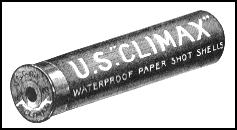From God
The U. S. War
With Mexico,
1846 - 1848
John S. D. Eisenhower
(University of Oklahoma)
the most unjust war ever waged by a stronger against a weaker nation.... an instance of a republic following the bad example of European monarchies.
The Mexican-American War lasted two years, killed almost 14,000 Americans (and far more Mexicans) and cost $100,000,000 in 1848 dollars. The strategies utilized were later used in the American Civil War --- indeed, Robert E. Lee was an engineer who's advice helped turned the tide in the last few battles.
The Duke of Wellington, of Waterloo fame, followed the campaign from afar and heaped praise on Winfield Scott, the invader of Mexico City. The landing at Veracruz was pure genius --- with hundreds of barges and "surfboats," which was, according to the author, the greatest collection of military sea-going vessels up to the invasion of Normandy. Over the next seven months, the U. S. won one siege and five major battles. Considering the fact that for much of that time, Scott was cut off from his source of supplies --- and cut off from his orders from Washington (possibly a blessing) --- the victory was a combination of luck, exquisite planning, good timing, and the sheer genius of the man.
There are many fascinating characters who were involved, with wonderful names like Zealous B. Tower, Gideon J. Pillow, John E. Wool, David Twiggs, and --- another worthy commander --- Zachary Taylor. The battles were not only with the Mexicans; they were often forced to fight, bitterly, with each other, President Polk, various Senators and Representatives, and assorted free-booters. In all, the American victory was most likely secured because Santa Anna, the main defender of Mexico City, liked fighting with his generals even more that with the enemy.
It was thus a war of prima donnas, the most obstreperous being Polk, Taylor, Scott, Pillow, John C. Frémont, and Thomas Hart Benton --- a Senator who had military cravings of his own, was constantly badgering the president for a generalship, and the generals for their real and imagined failures.
Wars were different then. You didn't drop out of the sky like now to bomb the hell out of the men, women and children. In those primitive times, reducing an entire nation to ashes was not the preferred tactic. You went in with some soldiers, they fought other soldiers, and whoever panicked first meant that there was a "victory" and a "defeat." The Mexican-American War was primarily fought almost completely in Mexico, to the south and west of Texas --- in Monterrey, Chihuahua, with a major victory at Buena Vista --- and, towards the end, at Veracruz, Puebla, and Mexico City. It would be like beating the Germans in 1945 by invading at Hamburg, taking Berlin and Bonn, and (in the elegant phrasing of the time) "suing for peace." In truth, the leisurely nature of it --- a few ferocious battles and the rest of the time spent waiting and trading long bitter memos back and forth --- is enough to make us wish that wars nowadays could have the same kind of leisure, the same kind of chivalry that, when a battle was over, one side of the other let the vanquished soldiers go home to their wives and children.
As a writer, Eisenhower apparently is no Winston Churchill. His narrative is so-so, and some sentences make us wonder what the hell he's talking about, viz,
Polk's determination to manipulate a war with Mexico appears to have had the effect of making Britain more cooperative...
The U. S. was in a dicey game of chicken with England at the time over the Oregon Territory so this statement, by itself, makes no sense. Or
In 1838 Santa Anna, by public acclaim, was temporarily recalled to expel the French, who had occupied Veracruz on a silly pretext.
What silly pretext are we talking about here?
Of more importance to the casual reader, the information is all here, including some wonderful doggerel,
Old Zack's at Monterey,
Bring out your Santa Anner;
For every time we raise a gun,
Down goes a Mexicaner.
 Most of all, Eisenhower leaves us with an appreciation of the random stuff of war: how the course of history could, with just a bit of tweaking at the right time, have been so very very different: if Santa Anna had not been feuding with his generals; if Scott had not prepared so exhaustively for the landing at Veracruz; if Zachary Taylor had lost the crucial battle at Palo Alto; if the commanders had listened to Polk (who always trying to second-guess the generals and who was generally wrong); if Nicholas Trist, sent in to negotiate the Treaty of Guadalupe Hidalgo, had actually obeyed a peevish recall by Polk; if Mexico had not been in such anarchy (many Americans wanted to annex the whole country, and, strangely, many Mexicans wanted the same thing). The thousands of random chances and how-
Most of all, Eisenhower leaves us with an appreciation of the random stuff of war: how the course of history could, with just a bit of tweaking at the right time, have been so very very different: if Santa Anna had not been feuding with his generals; if Scott had not prepared so exhaustively for the landing at Veracruz; if Zachary Taylor had lost the crucial battle at Palo Alto; if the commanders had listened to Polk (who always trying to second-guess the generals and who was generally wrong); if Nicholas Trist, sent in to negotiate the Treaty of Guadalupe Hidalgo, had actually obeyed a peevish recall by Polk; if Mexico had not been in such anarchy (many Americans wanted to annex the whole country, and, strangely, many Mexicans wanted the same thing). The thousands of random chances and how-